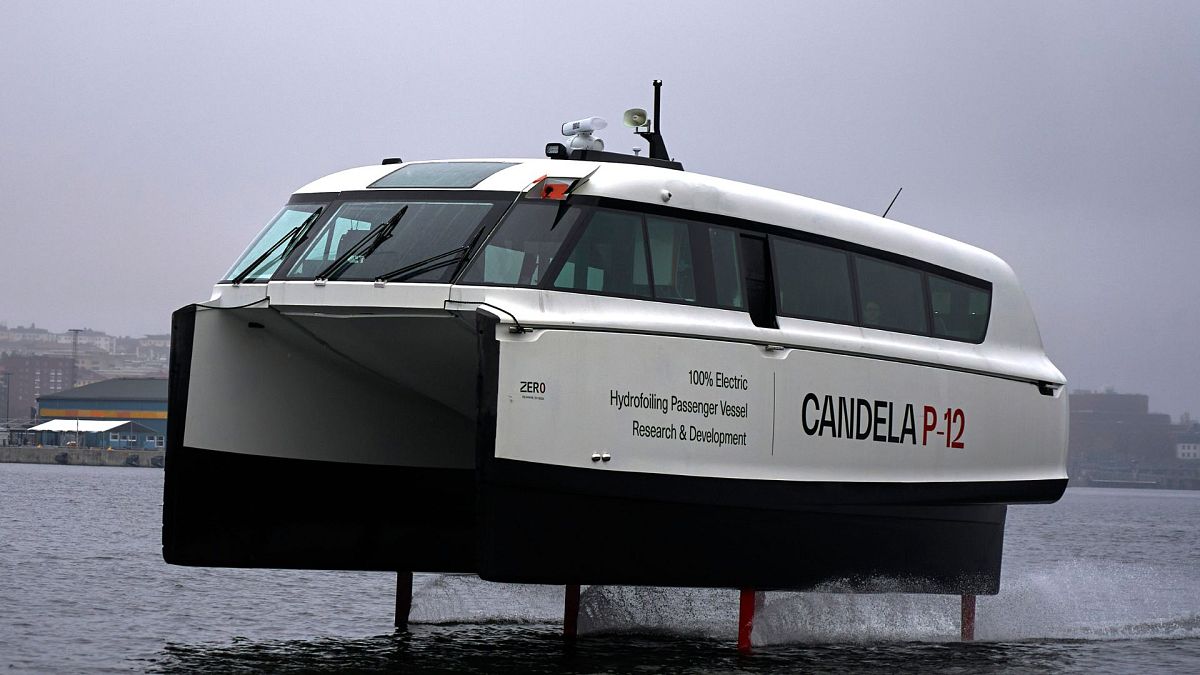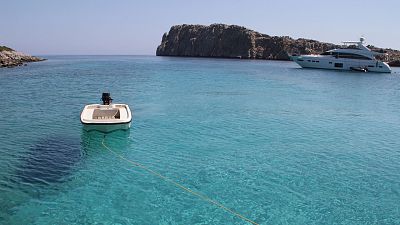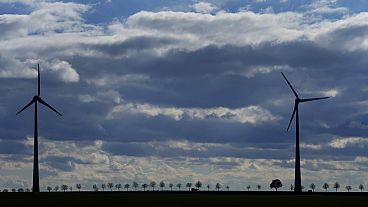From salt batteries to ‘flying’ ferries, here’s why Sweden is our Green Country of the Month.
As COP28 kicks off in Dubai this week, climate policy is under the spotlight. But it’s not only politicians who have the power to create and inspire change.
Researchers, scientists and innovators play a key role in giving us the knowledge and tools necessary to combat climate change right now and in the future.
In November, Sweden reminded us of this fact. Despite the country’s right-wing government rolling back climate commitments, there was a breakthrough in sodium-ion battery technology, the launch of a flying ferry service, and a prestigious award win for climate innovation.
Sweden’s sodium-ion battery breakthrough could reduce reliance on lithium
Last week the Swedish company Northvolt announced a significant breakthrough in its sodium-ion battery development.
The company says its battery is a cheaper and more sustainable way to store electricity - without using lithium, nickel, graphite and cobalt like most other batteries.
As the climate heats up, there is an urgent need to switch to renewable energy sources like wind and solar. But renewables are not always as consistent as other sources meaning batteries are needed to store this electricity for later use.
To achieve climate neutrality, the EU will require 18 times more lithium than it currently uses by 2030 and almost 60 times more by 2050.
But these metals come at a cost. Lithium extraction can result in water shortages, biodiversity loss, impacts on mining communities and soil degradation.
A sodium-ion battery could help avoid this, while steering clear of a limited resource that’s dependent on other parts of the world like China.
Northvolt says its new battery has been validated at an energy density of 160 watt hours per kilogram, which is similar to lithium batteries for storage purposes.
“Our sodium-ion technology delivers the performance required to enable energy storage with longer duration than alternative battery chemistries, at a lower cost, thereby opening new pathways to deploying renewable power generation,” Peter Carlsson, CEO and co-founder of Northvolt says.
A ‘flying’ electric ferry could cut congestion in Stockholm
On the seas, Sweden is also making waves in eco-innovation. A high-tech electric ferry was unveiled by Swedish developers last week.
The vessel is designed to carry 30 passengers at a maximum speed of 30 knots (56 km/h) - considerably faster than other electric passenger ferries. It achieves this with carbon fibre hydrofoil wings that lift the boat out of the water, reducing drag.
This cuts emissions as well as journey times. A trip between the Stockholm suburb of Ekero and the city centre will be slashed from 55 minutes to 25 minutes.
The boat is still in testing but is expected to enter service in July next year.
Green methanol company scoops top prize in Swedish awards
Back on land, Sweden has also been honouring innovation with the E-Prize - the country’s most prestigious energy innovation awards.
Last week, the winners were unveiled with Liquid Wind - a leading e-fuel developer - snagging the prize for Renewable Energy.
The circular carbon energy company aims to reduce the shipping industry’s reliance on fossil fuels with its ‘green’ methanol, which is converted from green hydrogen and CO2 from biomass power plants.
“We are very proud and honoured to receive Sweden's most prestigious award for climate innovation,” Claes Fredriksson, Liquid Wind’s CEO and founder says. “This is a true recognition for our team, our partners, our supporters and our vision towards creating a world without dependency on fossil fuels.”
The company’s first facility is expected to open in Örnsköldsvik in 2025, producing 50,000 tonnes of electrofuel per year. The goal is to produce eight million tonnes by 2030.
Other prize winners included CheckWatt, which was recognised in the Energy Optimisation category for its smart grid innovations, and electric motorcycle and moped manufacturer Cake, which received the Sustainable Transport award.
Sweden’s right-wing government concerns environmentalists
While these innovations make Sweden our Green Country of the Month, it is important to acknowledge the current political climate.
In March the country’s Climate Policy Council criticised the new environmental policy of the country’s right wing government who came to power in October 2022.
“Instead of rapidly reducing emissions, the changes decided and announced so far will, on the contrary, according to the government’s own assessment, increase emissions in the near future,” it stated in its annual report.
The government also caused an outcry when it scrapped the Ministry of Environment last month in a move the opposition branded “devastating”.
But these developments make it all the more important for people to step up and inspire Swedes at a time where they may be lacking hope.
What is Euronews Green's country of the month?
Each month we highlight a European country that is advocating for climate, nature and the environment. Our Green Country of the Month can stand out for anything from eco-innovations to policy change.
These are our previous winners: Albania, Denmark, Iceland, Austria, Portugal, Spain, Estonia and Wales.
If you’re feeling encouraged by a European government-led initiative or green innovation in December - please do reach out to us on social media, either on Instagram or Twitter.



